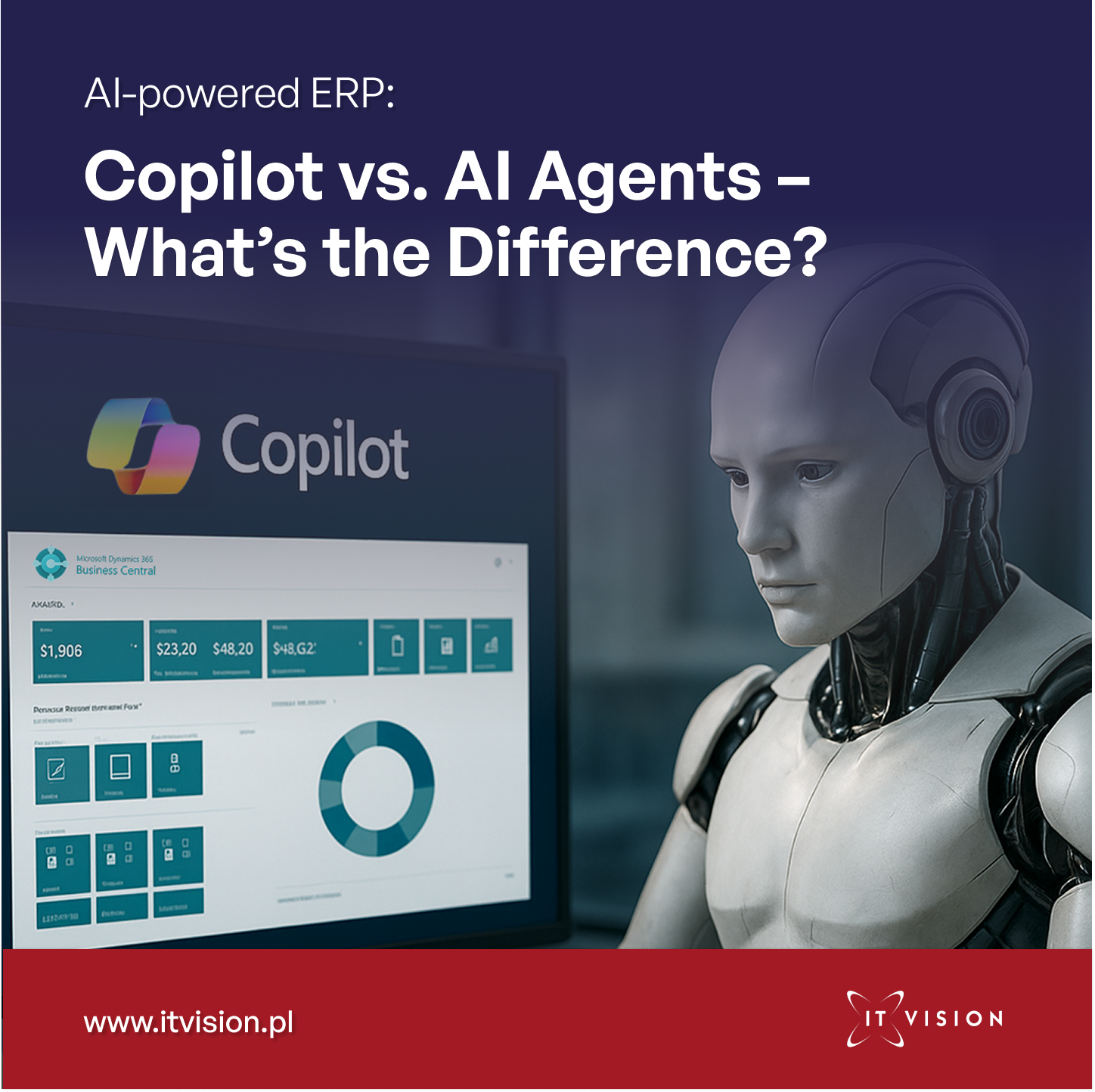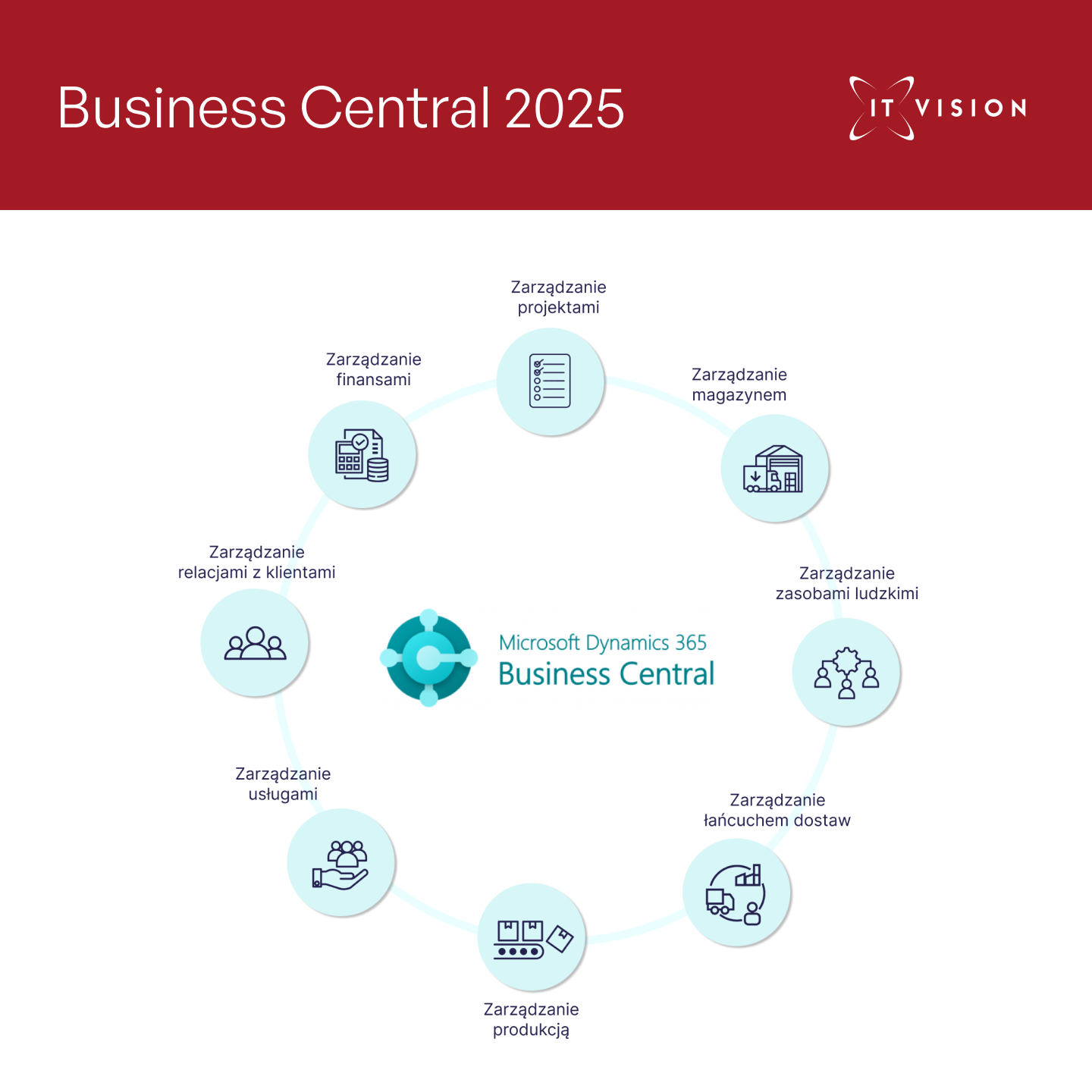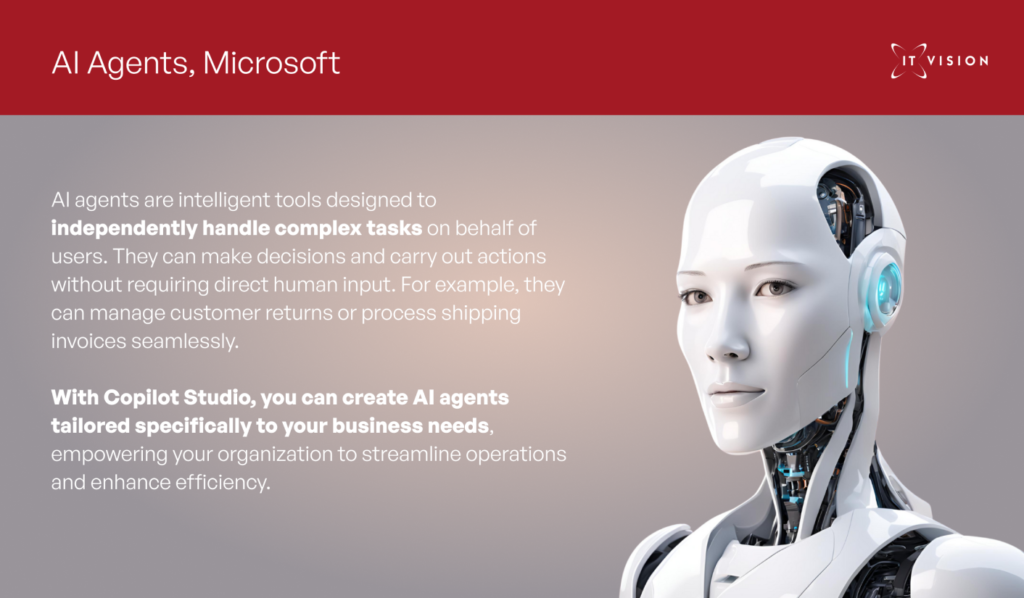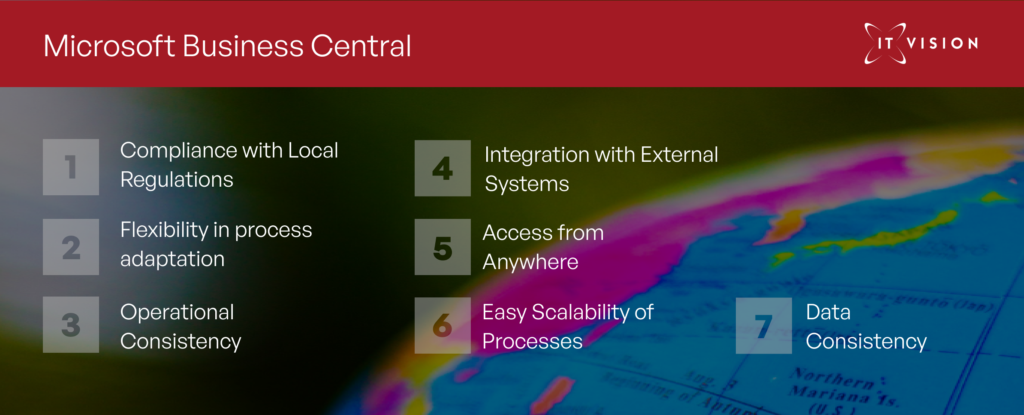AI in ERP Systems: Copilot and AI Agents – How to Choose the Right Tool for Your Business
The presence of AI in ERP systems is no longer surprising. Artificial Intelligence is making significant strides in the business world—enhancing operational efficiency, improving data quality, and automating the most tedious and repetitive processes. But how do you choose the right AI tool for your organization?
Today, we take a closer look at two solutions Microsoft has designed specifically for businesses: Microsoft Copilot and AI Agents. Both are built on advanced language models and Microsoft Azure technology, yet they serve very different purposes. Where did they come from? How do they work? And—most importantly—what sets them apart?
Copilot – Your Intelligent Work Companion
Microsoft Copilot was the first widely available AI tool integrated into Microsoft 365 applications. Its primary goal is to support users in daily tasks such as writing documents, analyzing data, managing calendars, or communicating with teams. Copilot acts as a background assistant—offering suggestions, automating actions, and streamlining tasks in the context of what you’re working on.
Thanks to its integration with tools like Word, Excel, Outlook, and Teams, Copilot helps users:
- Create and edit documents
- Generate conversation summaries
- Analyze data in spreadsheets
- Prepare presentations
- Manage inboxes and calendars
Copilot doesn’t act autonomously—it’s a supporting partner that responds to user actions and commands.
AI Agents – Autonomous Digital Workers
Following the success of Copilot, Microsoft introduced AI Agents. Why another AI solution? The answer is simple—business needs vary, and Copilot and AI Agents serve fundamentally different functions.
AI Agents are more autonomous tools capable of performing tasks without constant human interaction. They don’t just support users—they act independently. Their purpose is to carry out complex, often multi-step processes in the background, such as handling service requests, generating financial reports, managing HR workflows, or monitoring systems.
Importantly, AI Agents can be tailored to the specific needs of an organization. They can access company data, connect to external sources, and make decisions based on predefined rules.
Copilot vs AI Agents – A Comparison
The key difference between AI Agents and Copilot lies in their level of autonomy. Both tools play a role in daily business operations, depending on the nature of the tasks at hand.
Eric Kimberling, a digital transformation expert, illustrates this with a comparison between GPS navigation and an autonomous vehicle. While a GPS suggests directions, the human still drives; an autonomous vehicle independently determines the route, speed, and when to stop. Similarly, AI Agents gather data, make decisions, and act based on that data—eliminating the need for human intervention.
Hire an AI Agent for Your Business!
You already know that integrating AI into your ERP system can significantly boost your competitiveness—accelerating processes multiple times compared to others in your industry.
Curious about how AI can support your organization?
Book a free consultation and discover the possibilities!














